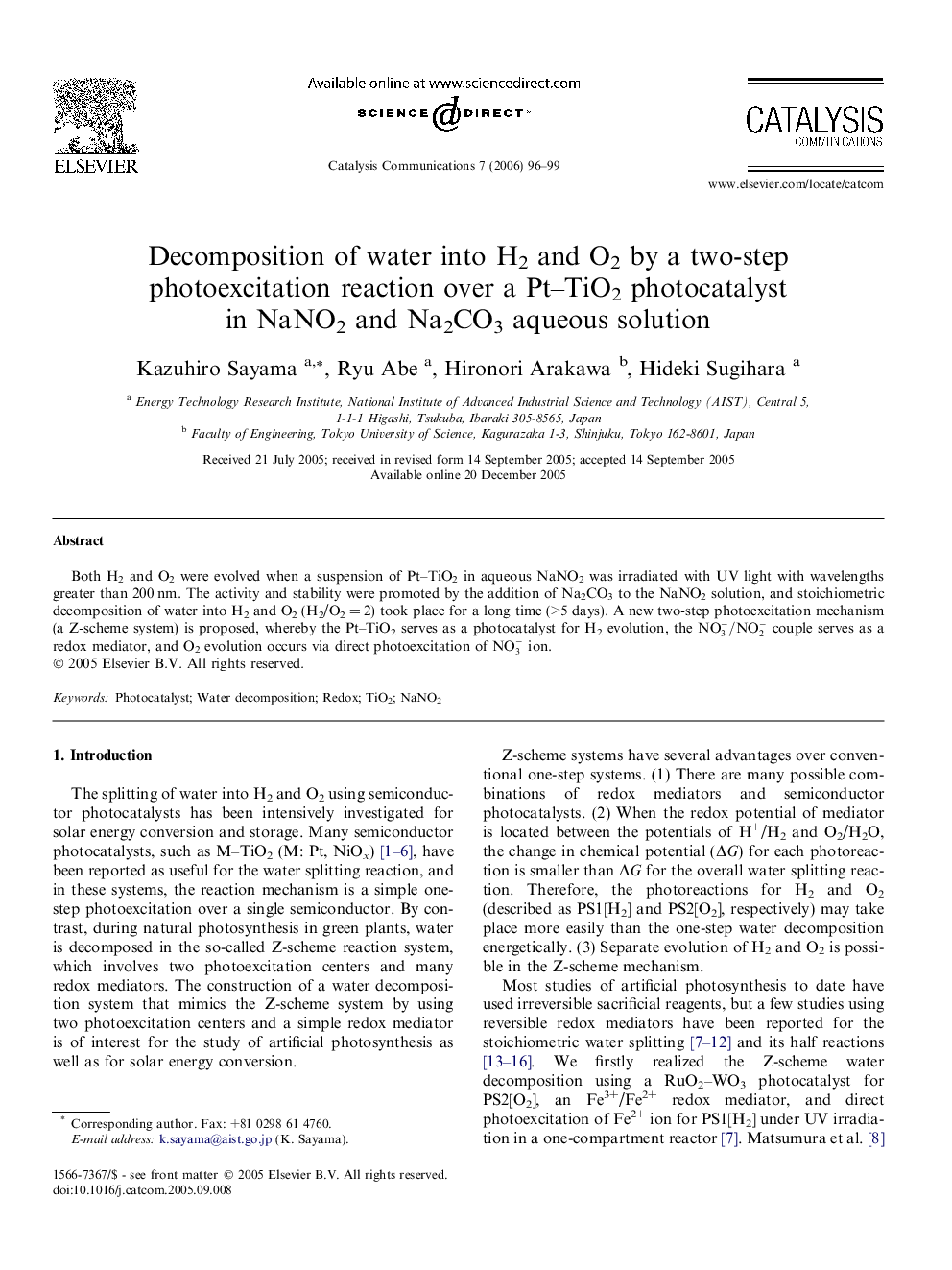| Article ID | Journal | Published Year | Pages | File Type |
|---|---|---|---|---|
| 52814 | Catalysis Communications | 2006 | 4 Pages |
Abstract
Both H2 and O2 were evolved when a suspension of Pt–TiO2 in aqueous NaNO2 was irradiated with UV light with wavelengths greater than 200 nm. The activity and stability were promoted by the addition of Na2CO3 to the NaNO2 solution, and stoichiometric decomposition of water into H2 and O2 (H2/O2 = 2) took place for a long time (>5 days). A new two-step photoexcitation mechanism (a Z-scheme system) is proposed, whereby the Pt–TiO2 serves as a photocatalyst for H2 evolution, the NO3-/NO2- couple serves as a redox mediator, and O2 evolution occurs via direct photoexcitation of NO3- ion.
Related Topics
Physical Sciences and Engineering
Chemical Engineering
Catalysis
Authors
Kazuhiro Sayama, Ryu Abe, Hironori Arakawa, Hideki Sugihara,
